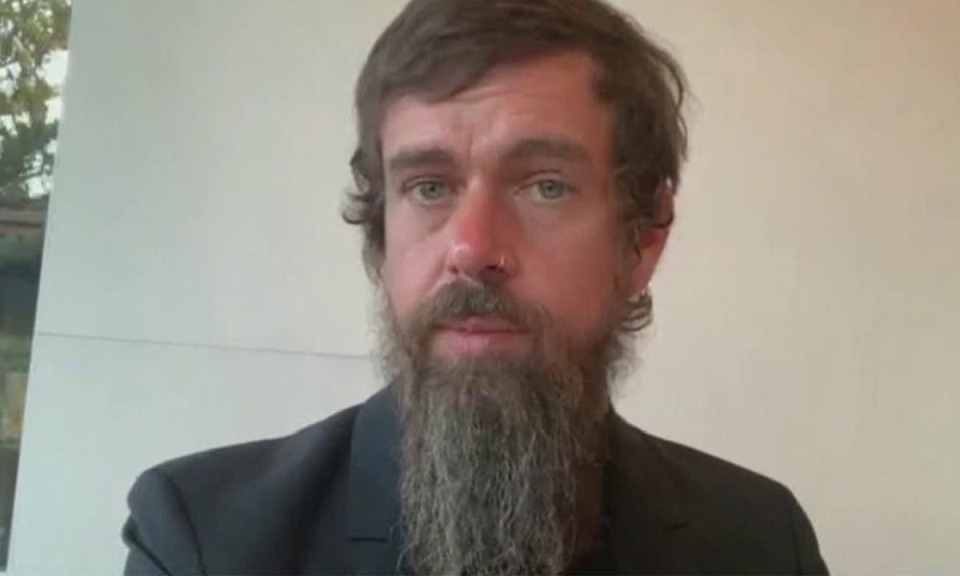“Who The Hell Elected You?” Sen. Cruz grilled Twitter founder Jack Dorsey during a heated Section 230 hearing of Big Tech. Watch Live

Twitter founder Jack Dorsey and executives of Facebook, and Google found themselves in the hot seat as US Senators grilled them regarding censoring of users’ content on their platform. During the hearing, Senator Ed Markey asks Zuckerberg if he can commit that Facebook’s algorithms “don’t spread” any calls to violence after the election.
During the hearing, Dorsey lied to senators when he claimed that his social media company has never censored President Trump.
“Just to be clear, we have not censored the president,” Dorsey said in response to Sen. Marsha Blackburn of Tennessee. “We have not taken the tweets down that you’re referencing. We have added context with a label and we do the same for leaders around the world.”
Update: Jack Dorsey probably unintentionally acknowledged that Twitter’s unofficial moderating system is based simply on whoever shows the most outrage. In response to questioning from Sen. Rick Scott, Dorsey replied:
“We don’t have a general policy around misleading information and misinformation… We rely upon people calling that speech out.”
Meanwhile, Jack Dorsey said the New York Post Twitter account will remain locked until it deletes the original tweet featuring its Hunter Biden story. Zuckerberg says it’s not up to Facebook to determine if it’s Russian interference and reiterates warnings from the FBI about being on guard for hack-and-leak operations when asked about the NY Post article.
So what is Section 230 of the Communications Decency Act of 1996? It is a section of the law that grants online platforms some legal immunity from the content users post. The law states that:
“No interactive computer services shall be treated as the publisher or speaker of any information provided by another information content provider.”
Watch Live: Twitter, Facebook, And Google CEOs Testify Before Senate Commerce Committee.
Sen. Ted Cruz: "The three witnesses we have before this committee collectively pose I believe the single greatest threat to free speech in America and the greatest threat we have to free and fair elections." #Section230 pic.twitter.com/MW274kMu1X
— ForAmerica (@ForAmerica) October 28, 2020
Here are the opening statements of Zuckerberg, Dorsey, and Pichai:
Facebook’s Mark Zuckerberg takes a more measured tone in his testimony (excerpt, emphasis ours):
…the debate about Section 230 shows that people of all political persuasions are unhappy with the status quo. People want to know that companies are taking responsibility for combatting harmful content—especially illegal activity—on their platforms. They want to know that when platforms remove content, they are doing so fairly and transparently. And they want to make sure that platforms are held accountable.
Section 230 made it possible for every major internet service to be built and ensured important values like free expression and openness were part of how platforms operate. Changing it is a significant decision. However, I believe Congress should update the law to make sure it’s working as intended. We support the ideas around transparency and industry collaboration that are being discussed in some of the current bipartisan proposals, and I look forward to a meaningful dialogue about how we might update the law to deal with the problems we face today.
At Facebook, we don’t think tech companies should be making so many decisions about these important issues alone. I believe we need a more active role for governments and regulators, which is why in March last year I called for regulation on harmful content, privacy, elections, and data portability. We stand ready to work with Congress on what regulation could look like in these areas. By updating the rules for the internet, we can preserve what’s best about it—the freedom for people to express themselves and for entrepreneurs to build new things—while also protecting society from broader harms. I would encourage this Committee and other stakeholders to make sure that any changes do not have unintended consequences that stifle expression or impede innovation.
Twitter’s Jack Dorsey is more aggressive, warning ironically that “Section 230 is the Internet’s most important law for free speech and safety. Weakening Section 230 protections will remove critical speech from the Internet.” – (excerpt, emphasis ours)
Twitter’s purpose is to serve the public conversation. People from around the world come together on Twitter in an open and free exchange of ideas. We want to make sure conversations on Twitter are healthy and that people feel safe to express their points of view. We do our work recognizing that free speech and safety are interconnected and can sometimes be at odds. We must ensure that all voices can be heard, and we continue to make improvements to our service so that everyone feels safe participating in the public conversation—whether they are speaking or simply listening. The protections offered by Section 230 help us achieve this important objective.
As we consider developing new legislative frameworks, or committing to self-regulation models for content moderation, we should remember that Section 230 has enabled new companies—small ones seeded with an idea—to build and compete with established companies globally. Eroding the foundation of Section 230 could collapse how we communicate on the Internet, leaving only a small number of giant and well-funded technology companies.
We should also be mindful that undermining Section 230 will result in far more removal of online speech and impose severe limitations on our collective ability to address harmful content and protect people online. I do not think anyone in this room or the American people want less free speech or more abuse and harassment online. Instead, what I hear from people is that they want to be able to trust the services they are using.
I want to focus on solving the problem of how services like Twitter earn trust. And I also want to discuss how we ensure more choice in the market if we do not. During my testimony, I want to share our approach to earn trust with people who use Twitter. We believe these principles can be applied broadly to our industry and build upon the foundational framework of Section 230 for how to moderate content online. We seek to earn trust in four critical ways: (I) transparency. (2) fair processes. (3) empowering algorithmic choice, and (4) protecting the privacy of the people who use our service. My testimony today will explain our approach to these principles.
Google’s Sundar Pichai warns in his prepared remarks that reforming Section 230 would have consequences for businesses and consumers.
As you think about how to shape policy in this important area, I would urge the Committee to be very thoughtful about any changes to Section 230 and to be very aware of the consequences those changes might have on businesses and consumers.

